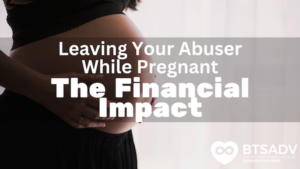By Hanna Embry Break the silence against domestic violence does...
Read More10 Ways Domestic Violence Impacts Children

One in seven children and young people under the age of eighteen have lived with domestic violence. Being a victim or witnessing domestic abuse, especially at a young age, can affect one’s well-being and development.
Aggressive behavior
Victims living with abuse at home often display similar, externalized behaviors. Fighting, lying, cheating, bullying, and impatience are all effects of domestic violence on children and young adults. Behavior deemed ‘out of control’ becomes normalized, which can be interpreted as acceptable to the child. The act of toughness can lead to violence, such as fighting and bullying, and lying and cheating can be used to avoid confrontation, running parallel with things seen in households where domestic violence occurs.
Lowered self-esteem
There are a plethora of conflicting feelings that children and young people have being raised in an abusive environment. They will often search for answers as to why something is happening and may even blame themselves for abusive situations that are no fault of their own. However, feelings of grief, shame, and low self-esteem likely accompany children.
Normalizing unhealthy relationships
Growing up in a violent household creates the narrative that violent behaviors are seen as acceptable behaviors. Therefore, unhealthy relationships are seen as the norm – children are influenced by their environment.
Anxiety
The trauma that comes along with living in an abusive environment can lead to long-term mental health problems such as anxiety and depression. Separation and stranger anxiety are specifically present in children as they grow up. Attachments are formed to specific family members, whether they lie with the abuser or the abused. Many children subject to domestic violence have trouble creating relationships, as is discussed further on.
Depression
Increased and prolonged depression is one of the most prevalent impacts domestic violence has on children and young adults. Suicidal thoughts, insomnia, phobias, and fears are frequently internalized behaviors accompanying depression.
Poor academic performance
Research shows that children develop various problems, many of which impact their school performance. There is an increased risk of school truancy and a lack of concentration on schoolwork both at the academic institution and at home.
Lack of social skills
Young people exposed to domestic violence lack a sense of foundation concerning safety. It is common for many people to become desensitized to things that children typically would not be. Research has shown that children from violent homes have lower levels of social competence, including a lack of empathy, poor problem-solving skills, and immaturity. There tends to be a pattern of isolation, making it difficult to create relationships with people outside the immediate home.
Change in the family dynamic
Family dynamics in cases of domestic violence can become highly complex. There are multiple ways in which children react to such instances, including trying to protect themselves or the victim in their family as well as maybe even siding with the abuser. A heavy sense of responsibility is put on the child, making it seem as though they can try and control the situation. This burden can lead to various outcomes, some of which have been mentioned above, such as aggression and lack of self-esteem.
Involvement in risky behaviors
Substance abuse, unsafe sexual behavior, eating disorders, and self-harm have been linked to the long-term effects of domestic violence exposure on children and teens. These behaviors can be linked to isolation and seeking things these children and young teens are not getting at home.
Probability of becoming a victim
Children and young people who grow up in households where domestic violence occurs are fifteen times more likely to experience sexual, physical, and emotional abuse than the national average. The link between domestic violence and child abuse creates a sense of normalized, patterned behavior that increases the likelihood of these children becoming victims themselves.
Domestic violence has a profound impact on children’s physical and mental health, affecting their behavior, self-esteem, relationships, academic performance, social skills, and overall well-being. Understanding these impacts is essential to address and prevent the negative effects of domestic violence on children and young adults.
Need Help?
Leaving an Abuser while Pregnant and the Financial Impacts
By Hanna Embry The financial impact, and overall impact of...
Read MoreLeaving is Only the Beginning: The Real Journey After Abuse.
By Iris Pendelton The Real Journey Begins After You Leave:...
Read MoreWhen Two Hearts Are Silenced.
By Tara Woodlee, President of Break the Silence Against Domestic...
Read More









